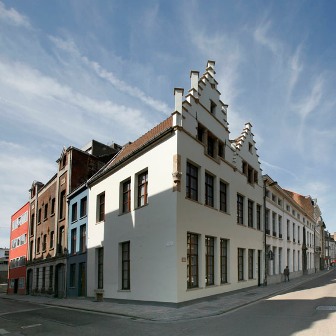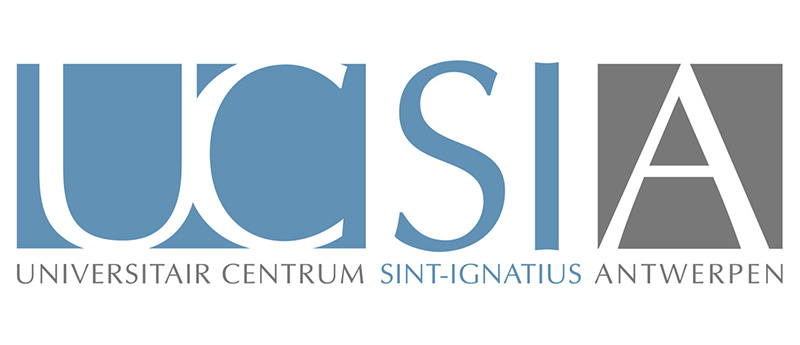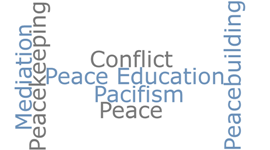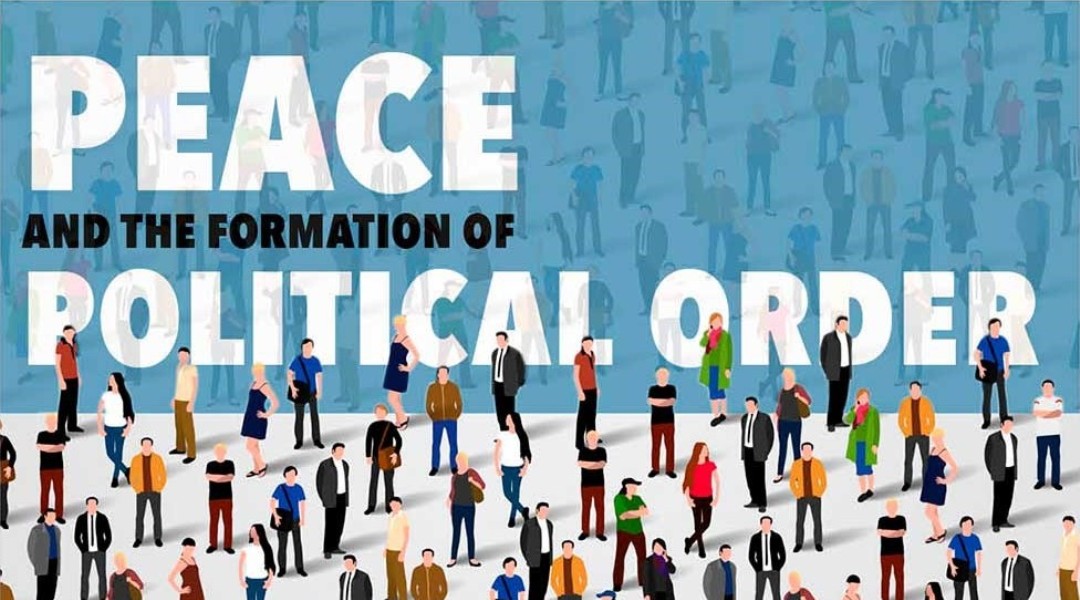
Peace and the Formation of Political Order
UCSIA organised this public lecture on Peacebuilding as the last in a series of academic workshops on different aspects of peace (cf. workshop on pacifism in December 2017 and workshop on non-nuclear peace in May 2018). Keynote speaker Oliver Richmond, Professor of International Relations, Peace and Conflict Studies at the University of Manchester in the UK, shared his views on how the concept of peacebuilding evolved in the policy domain with real effect on knowledge construction and research. Bert Ingelaere of the Institute of Development Policy of the University of Antwerp gave a response. The session was attended by more than 100 attendees, many of them students in international relations and development policy from the University of Antwerp, next to the 20 researchers involved in the ensuing expert workshop.
Peace Education Chair
examines an aspect of peace in its manifold manifestations and subjects it to a scholarly multidisciplinary investigation.
Jorg Kustermans of the Research Group of International Politics of the University of Antwerp, sketched the background of the peace workshop cycle and introduced the speaker. At the conception of the series, initially intended to investigate ‘war and peace’ the initiators decided to focus on peace, leaving the concept of ‘(just) war aside. Pacifism understands the nature of war better than just war theory does. It is a political project too. As a research field it operates from a more humble epistemology. The failure of nuclear deterrence and the sense of alienation that it brings along leads us to imagine a world without nuclear threat starting from such initiatives as the Ban Treaty. Key questions that arise from both workshops as to the ways in which violence may be reformed and new structures may be devised to allow for peace, point at peace building and the key topics on the agenda of this third workshop: the (formal) practice of institution building and the (informal) everyday practice of peace formation. Does peacebuilding actually build peace? Can local peace initiatives lead to more than havens of refuge or islands of peace?
Oliver Richmond has dedicated his professional life to the examination of the different strategies for maintaining international order in contemporary history (cf. his forthcoming books ‘Peace in the 21st Century’, Oxford University Press and ‘Power and Peace’, Manchester University Press) and engages with new questions about peace and war in the digital era. He pays much attention to local dimensions of peace in a wider context of increased assertiveness by local actors as well as a loss of confidence by major actors behind international peacebuilding support. He is editor of the Palgrave book series ‘Rethinking Peace and Conflict Studies’, in which the papers of the UCSIA workshop cycle will be published.
International peace intervention focuses on rebuilding state structures by reconstructing a constitutional political order according to a closely crafted scenario of Western origin. This does not guarantee legitimacy of authority. It gives way to what Johan Galtung has labelled ‘negative peace’ as opposed to the decentralized endogenous practices or forms of ‘positive peace’ of citizens who have to grant trusteeship to the state for it to be legitimized. This sort of emancipatory peace forms a challenge for the international political architecture. It threatens power structures and opens new spaces of resistance. This brings in the local and the social (hence the ‘local turn’ in peace studies).
The evolution of the term peacebuilding may be summarized in six layered phases (each one of them building up on the sediment of the former) and parallel shifts in research focus: from a geopolitical focus on power balancing within a pure security rationale (negative peace) over the (Kantian) design of institutions and laws (still leaving the people out of the equation), towards emancipatory peace allowing for social justice claims from the (Marxian) subaltern subject, to a form of hybrid peace (combining top-down & bottom-up approaches in a form of networked agency) in recognition of new (feminist and postcolonial) inequalities and the right to resist power structures in the nineties. Then the concept splits into two opposite reactions; a return to state building in a neoliberal fashion (security for capital) versus a new form of peacebuilding in response to feminist (against discrimination) and postcolonial critique (for more equal North-South relations, sharing the commons …)
This evolution shows how peace has become disconnected from the international political architecture and this is due to a lack of legitimacy. It also gives way to a broader concept of peace, beyond traditional binary reasoning. The next layer to expect will be based on a more mobile and networked concept of peace in the digital age. It will require new methodologies and tools to investigate and the field of research in itself needs to become more interdisciplinary, with contributions from sociology and anthropology next to international relations.
Bert Ingelaere, himself an anthropologist with longstanding field experience in Rwanda, responded to Oliver Richmond by referring to Hannah Arendt’s expression on ‘the banality of evil’ and the force of homegrown indigenous responses and the healing power in routines of everyday life.
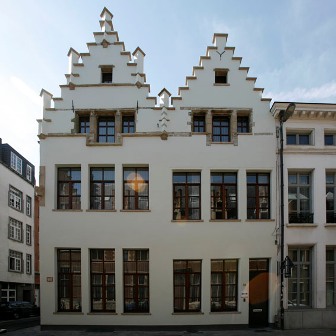
UCSIA
Koningstraat 2
B-2000 Antwerpen
info@ucsia.be
Tel. +32 (0)3 265 49 60
Voorlopige locatie tijdens de renovatiewerken:
Blindestraat 14, 2000 Antwerpen
